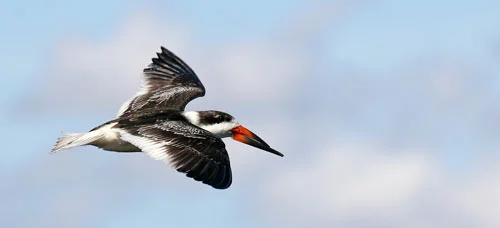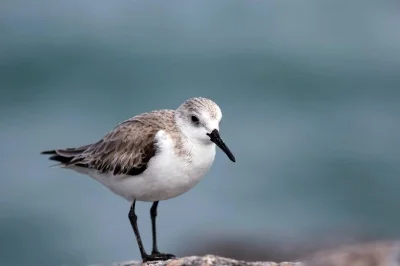LOOK OUT FOR SHOREBIRDS on SOUTH FLORIDA BEACHES
 (Black Skimmer)
(Black Skimmer)
Wildlife Officials say to Look out for shorebirds in South Florida
Florida Fish and Wildlife Conservation Commission (FWC) are asking all beachgoers to keep a look out and do your best not to disturb the shorebirds on the Atlantic coast of Florida.
During spring and summer, shorebirds are beach nesting; they tend to build nests with layers of sand and sea shells found on the beautiful resourceful beaches of South Florida. Due to their camouflage, hatching chicks, as well as the nest and eggs, are challenging to see with possibilities of being trodden on such as birds like the black skimmer, snowy plover and American oystercatcher and more. These types of shorebirds are species that face great challenges and need people’s awareness in order to keep on surviving.
“People can still enjoy the beach while keeping shorebirds and their chicks’ safe,” said Nancy Douglass, who works on shorebird conservation at the FWC. “Following a few simple steps while at the beach can have a tremendous positive impact on shorebirds. People’s actions can directly affect the success of shorebird nesting and whether future generations will get to see these iconic birds along our coasts.”
(Snowy Plover)
Ways to protect beach-nesting shorebirds:
• Keep your distance.
• Never intentionally force birds to fly or run. They use up energy they need for nesting, and eggs and chicks may be left vulnerable to the sun’s heat or predators.
• Avoid posted nesting sites and use designated walkways when possible.
• Keep the beach clean and do not feed wildlife. Food scraps attract predators such as raccoons and crows, which can prey on shorebird chicks. Litter on beaches can entangle birds and other wildlife.
• Spread the word. If you see people disturbing nesting birds, gently let them know how their actions may hurt the birds’ survival. If they continue to disturb nesting birds, report their activities to the FWC’s Wildlife Alert Hotline at 888-404-FWCC (3922), #FWC or *FWC on a cell phone or by texting Tip@MyFWC.com. You can also report nests that are not posted to Wildlife Alert.



Leave A Comment